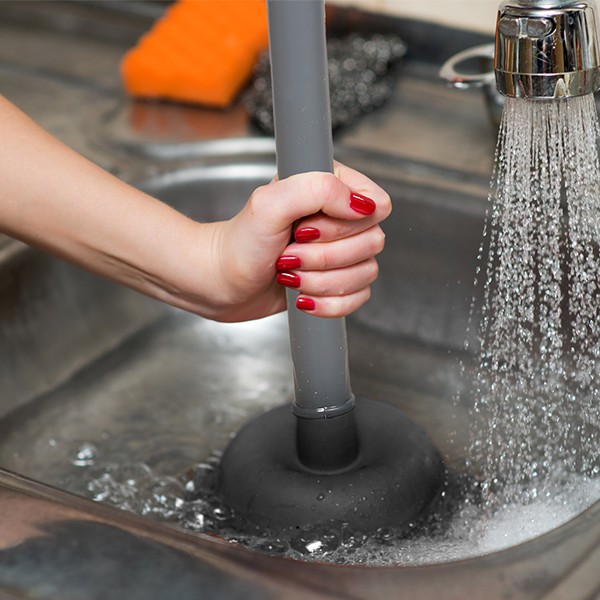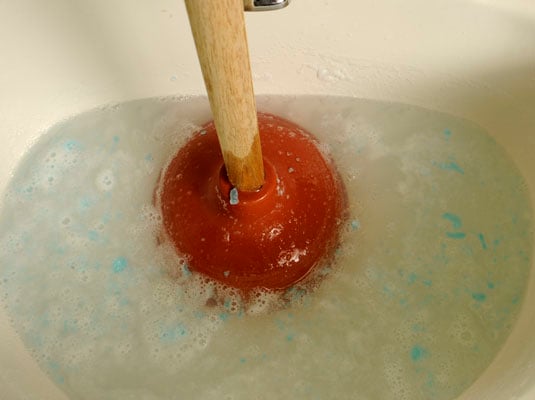Discover Plunger and Drain Cleaner: Top Practices
Discover Plunger and Drain Cleaner: Top Practices
Blog Article
Everybody seems to have their own unique idea with regards to How To Use Your Toilet Plunger Correctly in 5 Easy Steps.

Intro
Correct maintenance of family drains is essential for avoiding blockages and guaranteeing smooth water flow. One of the secret tools in every house owner's toolkit is the plunger, alongside different drain cleaners made to tackle persistent obstructions successfully. This write-up explores exactly how to use plungers and drain cleaners properly to maintain your drains moving openly.
Area 1: Understanding Plungers
Types of Plungers
There are numerous sorts of bettors available, each developed for various types of drains pipes and obstructs. The most typical types include cup bettors, flange bettors, and accordion bettors.
Just How Plungers Job
Plungers service the concept of producing pressure and suction to displace obstructions. When effectively used over a drain, they produce a vacuum cleaner that can take out particles or break up blockages.
Selecting the Right Plunger
Selecting the right bettor depends upon the type of drain and the nature of the clog. Mug plungers are suitable for sinks and bathtubs, while flange plungers are better suited for commodes because of their style.
Usual Mistakes with Bettors
Avoiding these blunders makes sure effective plunging: inappropriate seal around the drainpipe, insufficient pressure, and not clearing bordering particles.
Area 2: Utilizing Plungers Effectively
Prep work
Before diving, guarantee the plunger covers the drainpipe completely and develops a tight seal. Clear any kind of noticeable particles around the drain opening.
Method
Start with mild diving activities to construct suction. Rise stress gradually, making use of a constant rhythm. Repeat as necessary up until the drainpipe clears.
Troubleshooting Tips
If plunging doesn't work, try adjusting the seal, applying oil jelly for a much better seal, or utilizing a different type of plunger.
Area 3: Comprehending Drainpipe Cleansers
Types of Drainpipe Cleaning Company
Drain cleaners can be chemical or chemical. Chemical cleaners utilize strong chemicals to liquify clogs, while chemical cleaners use natural enzymes to break down raw material.
Just How Drainpipe Cleaners Job
Chemical cleansers respond with blockages to liquify them, while chemical cleansers break down organic products like hair and oil without harming pipelines.
Security Factors to consider
Always wear gloves and eye defense when using chemical drain cleaners. Make sure adequate air flow and comply with manufacturer instructions very carefully.
Eco-Friendly Alternatives
Think about making use of vinegar and baking soda or enzyme-based cleansers for environment-friendly options that are more secure for pipelines and the environment.
Area 4: Utilizing Drain Cleansers Effectively
Application Strategies
Put chemical cleansers straight into the drainpipe opening. Allow them to benefit the recommended time prior to purging with hot water. Enzymatic cleansers should sit over night.
Preventative measures
Avoid mixing various kinds of cleaners, as this can generate hazardous fumes. Never use chemical cleaners along with a bettor, as spilling can take place.
Managing Stubborn Obstructions
For consistent clogs, consider making use of a plumbing serpent or calling a specialist plumbing to avoid damage to pipelines.
Final thought
In conclusion, recognizing exactly how to utilize plungers and drain cleaners effectively is vital for keeping healthy plumbing systems. By picking the right tools and techniques, homeowners can tackle minor clogs and stop significant pipes concerns down the line.
How To Properly Use A Plumbing Snake To Clear Drains
When any drain clogs in our home arise, we tend to gravitate toward the plunger and little else. In cases where the plunger and its vacuum-created pressure are not able to clear clogs, many immediately move to harmful chemicals or simply call their plumber to fix the issue.
we’re happy to help with all drain cleaning needs and concerns. This includes informing you on a few other home remedies you may have at your disposal for minor to moderate clogs, one of which is the use of a plumbing snake. Many people have never used one of these before – let’s go over the steps to take when your drain clogs and you have a plumbing snake available.
Attempt Plunger Use
The first step here, as we noted above, should indeed be to grab your plunger when you notice a drain clog and attempt to resolve it this way. If you’re unsure how to use a particular type of plunger, our plumbers can answer any questions you have. If this doesn’t do the trick, however, you move on to the snake.
Locate And Prepare Snake
A plumbing snake is a metal or plastic device that’s generally about a quarter of an inch thick. It’s design with significant extensions, meant to reach down into your clogged drain and push the clog out. Snakes also contain drain augers that will latch onto and push stubborn blockages.
If your plunger doesn’t clear a clog, locate your snake and bring it to the drain in question. We also recommend keeping a bucket nearby to collect the clog once you pull it out, plus we’d advise wearing goggles and possibly protective gloves.
Feed Snake
Once you’re ready to go, feed the snake slowly down the drain, using the crank device it comes with to keep it moving until it finds the clog. Once this happens, much of the clog will be latched onto the coil so you can pull it out, while the rest will simply break up and flow downward.
Detach Debris
Remove the snake slowly from the drain, and once you’ve done so, pick off any debris that’s stuck to the coil. This is another area where wearing gloves is a must.
Flush Drain
Finally, take a few minutes to ensure the snake has done its job correctly. If you’ve been using it on a toilet, flush the toilet a couple times and make sure everything flows well. If you’ve used it on a different drain, flush it with some room temperature water.
https://www.mybuddytheplumber.com/blog/how-to-properly-use-a-plumbing-snake-to-clear-drains/

Application Strategies
Put chemical cleansers straight into the drainpipe opening. Allow them to benefit the recommended time prior to purging with hot water. Enzymatic cleansers should sit over night.
Preventative measures
Avoid mixing various kinds of cleaners, as this can generate hazardous fumes. Never use chemical cleaners along with a bettor, as spilling can take place.
Managing Stubborn Obstructions
For consistent clogs, consider making use of a plumbing serpent or calling a specialist plumbing to avoid damage to pipelines.
Final thought
In conclusion, recognizing exactly how to utilize plungers and drain cleaners effectively is vital for keeping healthy plumbing systems. By picking the right tools and techniques, homeowners can tackle minor clogs and stop significant pipes concerns down the line.
How To Properly Use A Plumbing Snake To Clear Drains
When any drain clogs in our home arise, we tend to gravitate toward the plunger and little else. In cases where the plunger and its vacuum-created pressure are not able to clear clogs, many immediately move to harmful chemicals or simply call their plumber to fix the issue.
we’re happy to help with all drain cleaning needs and concerns. This includes informing you on a few other home remedies you may have at your disposal for minor to moderate clogs, one of which is the use of a plumbing snake. Many people have never used one of these before – let’s go over the steps to take when your drain clogs and you have a plumbing snake available.
Attempt Plunger Use
The first step here, as we noted above, should indeed be to grab your plunger when you notice a drain clog and attempt to resolve it this way. If you’re unsure how to use a particular type of plunger, our plumbers can answer any questions you have. If this doesn’t do the trick, however, you move on to the snake.
Locate And Prepare Snake
A plumbing snake is a metal or plastic device that’s generally about a quarter of an inch thick. It’s design with significant extensions, meant to reach down into your clogged drain and push the clog out. Snakes also contain drain augers that will latch onto and push stubborn blockages.
If your plunger doesn’t clear a clog, locate your snake and bring it to the drain in question. We also recommend keeping a bucket nearby to collect the clog once you pull it out, plus we’d advise wearing goggles and possibly protective gloves.
Feed Snake
Once you’re ready to go, feed the snake slowly down the drain, using the crank device it comes with to keep it moving until it finds the clog. Once this happens, much of the clog will be latched onto the coil so you can pull it out, while the rest will simply break up and flow downward.
Detach Debris
Remove the snake slowly from the drain, and once you’ve done so, pick off any debris that’s stuck to the coil. This is another area where wearing gloves is a must.
Flush Drain
Finally, take a few minutes to ensure the snake has done its job correctly. If you’ve been using it on a toilet, flush the toilet a couple times and make sure everything flows well. If you’ve used it on a different drain, flush it with some room temperature water.
https://www.mybuddytheplumber.com/blog/how-to-properly-use-a-plumbing-snake-to-clear-drains/

I ran across that blog entry about Tips on How to Effectively Use a Plunger when exploring the internet. Sharing is good. Who knows, you could be helping someone out. Bless you for your time. Don't forget to check our website back soon.
Check This Out Report this page